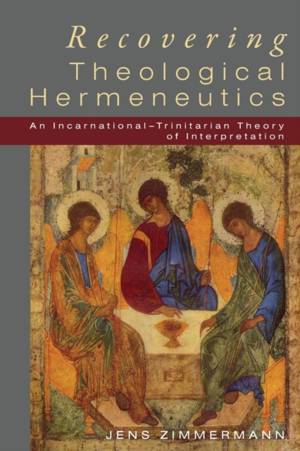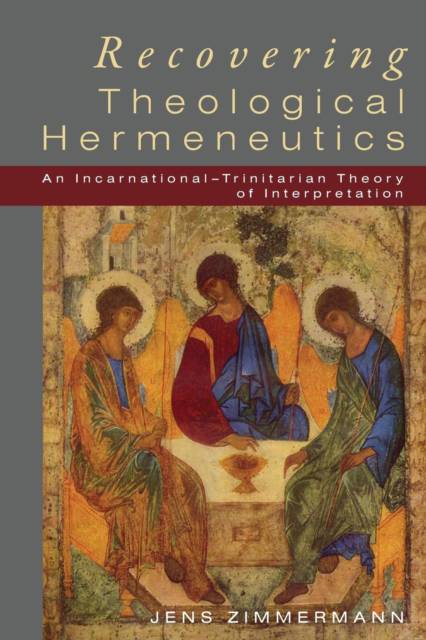
En raison d'une grêve chez bpost, votre commande pourrait être retardée. Vous avez besoin d’un livre rapidement ? Nos magasins vous accueillent à bras ouverts !
- Retrait gratuit dans votre magasin Club
- 7.000.000 titres dans notre catalogue
- Payer en toute sécurité
- Toujours un magasin près de chez vous
En raison de la grêve chez bpost, votre commande pourrait être retardée. Vous avez besoin d’un livre rapidement ? Nos magasins vous accueillent à bras ouverts !
- Retrait gratuit dans votre magasin Club
- 7.000.0000 titres dans notre catalogue
- Payer en toute sécurité
- Toujours un magasin près de chez vous
Description
Endorsements: "This book is a careful, historical demonstration of the way in which hermeneutics was secularized yet continues to borrow on the capital of Christian theology. By exposing the problems inherent in secular hermeneutics and correcting the histories of philosophical hermeneutics on record, Zimmerman points a way forward beyond secular hermeneutics. This is a bold project that should be read not only by theologians but, more especially, by those philosophers working in the wake of Heidegger, Gadamer, Derrida, and Levinas. This book is an excellent addition to any course in philosophical hermeneutics." -- James K. A. Smith, author of The Fall of Interpretation "In Recovering Theological Hermeneutics, Zimmerman offers a compelling argument for the claim that hermeneutics must be theological if it is to be truly hermeneutical. Through a fair and careful reading of premodern and postmodern hermeneutical theorists, he shows their true kinship. Building appreciatively (though not uncritically) upon insights of Gadamer, Levinas, and Derrida, Zimmerman draws from Bonhoeffer and Balthasar to construct an incarnational hermeneutic. Zimmerman provides us with a deeply Christian view of human understanding--one that results in nether hermeneutical triumphalism nor hermeneutical despair but affirms understanding as relational, historical, and ultimately based on God's revelation." --Bruce Ellis Benson, author of Graven Ideologies: Nietzsche, Derrida, and Marion on Modern Idolatry "Recovering Theological Hermeneutics is an important contribution to hermeneutics. Zimmerman provides not only a detailed and convincing historical analysis but also an outline of theological hermeneutics that is ethical, incarnational, and thus, in the best sense of the word, truly evangelical. Far from naively idealizing a premodern point of view, Zimmerman convincingly works through modern and postmodern thought. In so doing, he shows the often-overlooked potential of the premodern Christian tradition without ignoring its difficulties and shortcomings--a challenge to both modern and postmodern theology and, indeed, philosophy." --Holder Zaborowsky, Albert-Ludwig University of Freiburg About the Contributor(s): Jens Zimmermann holds a Canada Research Chair at Trinity Western University. He is coauthor of The Passionate Intellect (2006), and coeditor of Being Human, Becoming Human: Dietrich Bonhoeffer and Social Thought (2010).
Spécifications
Parties prenantes
- Auteur(s) :
- Editeur:
Contenu
- Nombre de pages :
- 352
- Langue:
- Anglais
Caractéristiques
- EAN:
- 9781610976442
- Date de parution :
- 01-02-12
- Format:
- Livre broché
- Format numérique:
- Trade paperback (VS)
- Dimensions :
- 150 mm x 226 mm
- Poids :
- 453 g

Les avis
Nous publions uniquement les avis qui respectent les conditions requises. Consultez nos conditions pour les avis.






